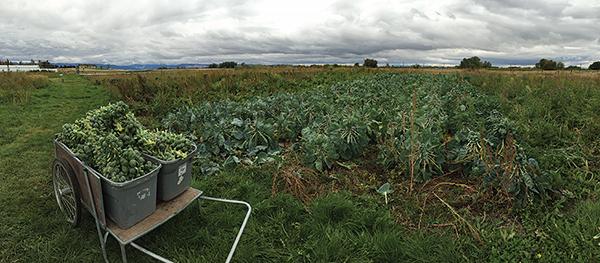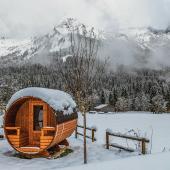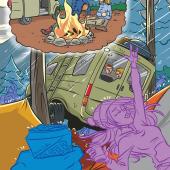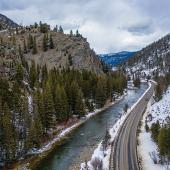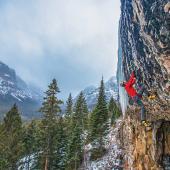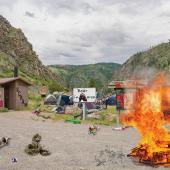Dirt & Dinner
Connecting the two in Gallatin Valley.
A few years ago, I attended a presentation by Randy Brown who at the time was the executive director of the Foothills Land Conservancy. The group is dedicated to preserving open space around the foothills of the Great Smoky Mountains, similar to the work the Gallatin Valley Land Trust does in these parts. Randy caused a few eyebrows to rise when he said, “Hold on to your Confederate dollars boys, because the South is going to rise again!” Randy was actually referring to the fact that a huge amount of our nation’s vegetables and fruits come from California’s Central Valley, and the many perils that future faces, from drought to transportation expenses to labor shortages. He was making the point that much of the South, with its fertile soil and long growing season, is in a great position to provide its own food without depending on California.
I thought about Randy’s comments recently while driving down Love Lane, as I passed yet another “For Sale” sign posted in a large expanse of agricultural fields. The lush fertile ground in the Gallatin Valley was certainly recognized by early homesteaders, and especially Native American tribes, who referred to the region as “the Valley of Flowers.” I find it interesting that we express great concern regarding our national security as it relates to issues such as energy production, but what about food production? Those of us in the Gallatin Valley who enjoy gardening can attest to the fine, fertile soil, as well as an adequate growing season, that produces an excellent variety of fruits and vegetables. So why are we sitting idly by and watching this wonderful, productive soil get paved over and removed forever from producing food?
I recently visited Tuzigoot National Monument in Arizona, where I learned that during the 12th century, the Native American Sinagua Indians possessed the foresight to recognize the value of fertile soil. They purposely built their 110-room pueblo away from the productive land and instead along rocky foothills so as to preserve the excellent soil. Here in the Gallatin Valley, we don’t possess the same foresight that the Sinagua demonstrated over 800 years ago.
For over three decades, I was a professor of economics at a community college, and one thing that I truly understood was the fact that while our free-market economic system provides many wonderful incentives for achieving economic prosperity, it fails miserably when it comes to foresight. The free-market system may have given us a Disneyworld, but it is not capable of preserving and protecting lands for the benefit of society as a whole, such as state and national parks and wilderness areas. The same could be said for prime farmland. The free market allows large farms to be sold off for development, but is this really beneficial in the long run for the future well-being of residents of our valley?
It is true that there are excellent private organizations that strive to protect open space and prime farmland. Some of these include the Montana Land Reliance (“Cows not Condos”; mtlandreliance.org), the American Farmland Trust (“No Farms, No Food”; farmland.org), as well as numerous groups such as the Nature Conservancy (nature.org) and the previously mentioned Gallatin Valley Land Trust (gvlt.org). Their efforts are indeed critically needed and many wonderful open spaces have been protected from development. As an example, the Montana Land Reliance recently passed an incredible milestone by protecting over one million acres of land in Big Sky Country.
Yet, prime farmland continues to be paved over here in Gallatin Valley. Why? We are told this is necessary to accommodate “growth.” The old curmudgeon environmentalist Edward Abbey had an interesting quote about growth: “Growth for the sake of growth is the ideology of a cancer cell.” Since the free market is incapable of preserving and protecting the prime farmland within our valley, it falls to the citizens and our leaders on the local, state, and federal level. This is not just a “wise planning” issue. It truly is stupid to subscribe to the idea that filling in our fertile valley with housing and commercial development is “inevitable."
No one seems to know the origin of this poignant quote: “We do not inherit the earth from our ancestors; we borrow it from our children”; however, it is indeed a profound statement. We would do justice to our future generations by protecting, not developing, the prime farmland in the Valley of the Flowers.


